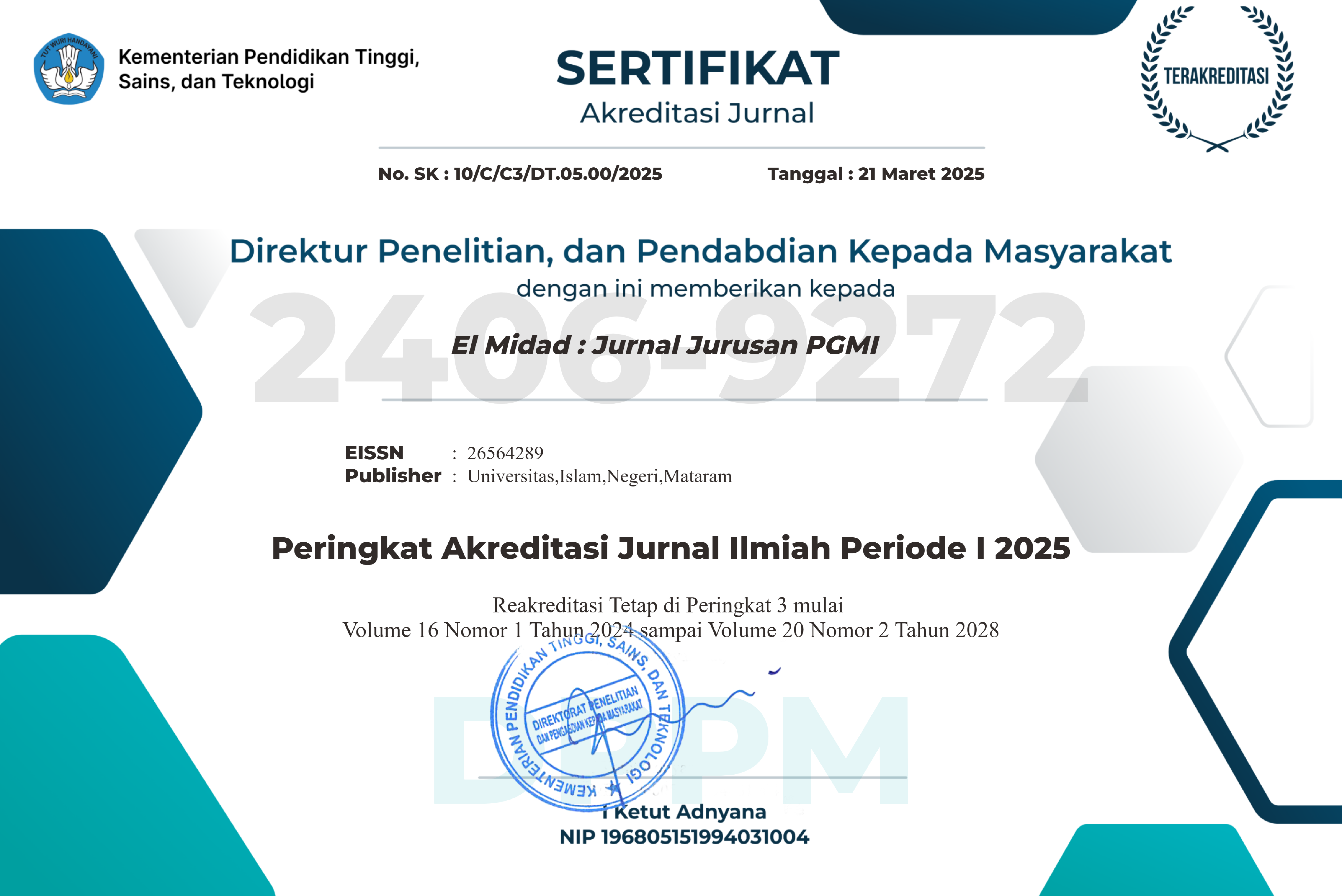INTEGRATION OF RELIGION AND SCIENCE CURRICULUM ON EMPATHY AND COOPERATION ATTITUDES OF STUDENTS OF SDIT AL FIRDAUS PURWODADI
DOI:
https://doi.org/10.20414/elmidad.v17i2.13851Keywords:
Curriculum Integration, Religion and Science, Empathy, Collaboration, Elementary Education.Abstract
This study aims to analyze the effect of religion and science curriculum integration on the empathy and cooperation attitudes of elementary school students, against the background of the importance of holistic character education at the basic education level. The research was conducted at SDIT Al Firdaus Purwodadi with a quantitative ex-post facto approach, involving 30 students in grades IV and V selected through purposive sampling technique. Data collection techniques included questionnaires, observation, and documentation, while data analysis used validity, reliability, normality, homogeneity, and simple linear regression tests with the help of SPSS. The results show that the integration of religion and science curriculum has a significant effect on increasing student empathy and cooperation, with a Cronbach's Alpha value of 0.855, as well as statistical test results that show significance below 0.05. This study concludes that a learning approach that combines moral values and scientific concepts is able to shape students' social character as a whole and create a learning atmosphere that supports the development of empathy and cooperation. The findings provide theoretical and practical contributions in the development of integrative learning models in basic education, especially in strengthening the integration between students' religious and intellectual aspects.
Downloads
Downloads
Published
Issue
Section
License
Copyright (c) 2025 Asri Ainur Rohmah, Muhammad Abduh

This work is licensed under a Creative Commons Attribution-ShareAlike 4.0 International License.





